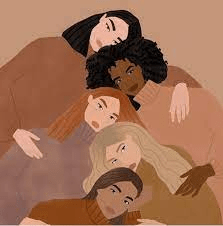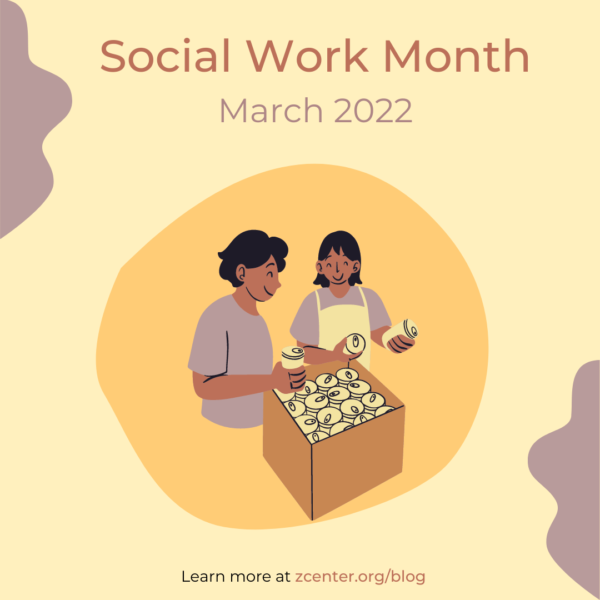“Alone we can do so little; together we can do so much” ~Helen Keller

March is the national month of social workers. According to the National Association of Social Workers, there are 720,000 social workers in the U.S, who have dedicated their focus in fighting social injustices. Due to COVID-19, the national need for social workers has had a dramatic increase.
Social workers are constantly fighting for social injustices dating back to the Civil Rights Movement, in which social workers fought for voting rights for people of color. One of the biggest social injustices that social workers fought for and continue to fight for is women’s rights.
Timeline and Overview of Women’s Rights
- 1833: Social workers fighting for women’s rights dates back to the mid 19th century, in which Oberlin College was founded as the first educational institution to accept women and African Americans. Prior to this, women did not have access to higher education as women typically became housewives, needing no education.
- 1872: In 1872, Victoria Woodhull became the first woman to run for U.S. president. Although she did not win, she paved the way for women to run for president. Victoria was one of the many leaders of the Women’s Suffrage Movement, first to own a brokerage firm on Wall Street, and an activist for women’s rights and labor reform.
- 1890: Wyoming became the first state to allow women the right to vote in its state elections.
- 1918: Margaret Sanger won a suit in New York which allowed doctors to advise their patients about birth control. Margaret Sanger was a big advocate of providing women with birth control information. In 1916, Singer opened her first birth control clinic in Brooklyn. Shortly after, she was arrested, which led to her fight for birth control rights and those rights being granted in 1918.
- 1920: In 1920, the 19th amendment was ratified which granted women the right to vote, an issue that was a long standing fight against Congress. Although many individuals were involved in this fight, Alice Paul was a social worker who became a fundamental figure in women’s history. Alice Paul founded the National Women’s Party, which led to women getting the right to vote.
- 1932-34: In 1932, Hattie Wyatt Caraway, of Arkansas, became the first woman elected to the U.S. Senate. In 1933, Frances Perkins was the first woman to serve on a Presidential Cabinet under President Roosevelt. In 1934, Lettie Pate Whitehead was the first woman to serve as director in a big corporation (Coca Cola Com.).
- 1963: The Equal Pay Act was passed which promised everyone would be payed equally regardless of race, color, religion, national origin or sex.
- 1964: The Civil Rights Act was passed prohibiting discrimination based on race, color, religion, nation al origin, or sex.
- 1969: Women were able to work jobs that were for men only if they met physical requirements.
- 1973: The U.S. The Supreme Court declared that the Constitution would protect women’s right to terminate early pregnancies, making abortion legal.
- 1987: Congress assigned March as the National month of Women’s History Month.
- 1994: The Gender Equity in Education Act was adopted by Congress, which promoted math, science, and learning by girls; it also advised on providing counsel for pregnant teens and services for the prevention of sexual harassment. In that same year, the Violence Against Women Act was created to provide services for victims of rape and domestic violence.
- 2021: Kamala Harris becomes the first female vice president.

These are just a few events in U.S. history that have enabled women to have the same equality as men, at home, at work, with their bodies, and basic human rights. There is still a long way to go to achieve equality for all but without activists and social workers, we would not be able to be where we are now!
Learn more about the history of women’s rights:
References:
- https://www.pacificoaks.edu/voices/from-the-magazine/the-next-generation-social-worker/
- https://socialwork.tulane.edu/blog/15-inspirational-quotes-for-social-workers
- https://www.socialworkers.org/LinkClick.aspx?fileticket=zBWVv1MFAoU%3d&portalid=0
- https://yourdream.liveyourdream.org/2017/03/history-of-womens-rights-america/?utm_term=nineteenth%20amendment&utm_campaign=LYD+Blog&utm_source=adwords&utm_medium=ppc&hsa_acc=3468286777&hsa_cam=1523929566&hsa_mt=b&hsa_net=adwords&hsa_src=g&hsa_ver=3&hsa_ad=575900888609&hsa_tgt=kwd-755813658&hsa_grp=62067939321&hsa_kw=nineteenth%20amendment&gclid=CjwKCAiAyPyQBhB6EiwAFUuakhQrzBUeMDMBuBdEKaXnMSva8yJsURqJb7_U4JUSRk5_oWxFEnT0yhoCKHcQAvD_BwE
- https://www.youtube.com/watch?v=VstMwQkeF4w
- https://ehistory.osu.edu/biographies/victoria-woodhull
- https://www.womenshistory.org/education-resources/biographies/margaret-sanger
Written by Evelyn Perez, ZCenter Intern and BSW Candidate at Northeastern Illinois University.
ZCenter aims to end sexual violence, mobilize and educate the public, and support survivors of sexual assault. Our blog addresses issues related to ending oppression and violence, since all oppression and violence are intersectional with sexual violence. All ZCenter blog posts are written by state certified staff, interns, and volunteers. For questions on authorship or content, please email info@zcenter.org.

